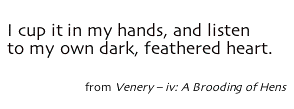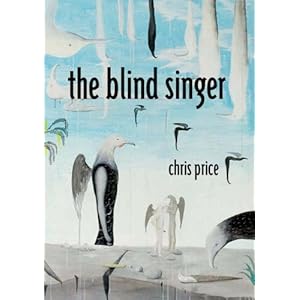The creative writing class I teach is compulsory for Communications students at Massey University, so not everyone in the class (read: most of them) want to be there. Many have either never written a poem or written one only once somewhere in the dim past. Somehow their high school teachers managed to skirt poetry and focus on prose because it's 'easier'. There are always one or two self-selected writers per class even if they're not prepared to fess up to it, and there are those who are writers even if they don't know it.
I love seeing a student's face when he or she reads out a poem and the class applauds or I say 'wow' or 'that's a poem!' or something teacherly like that. There's always a small shift upwards in the bones under the young skin in front of me, the eyes seem wider, the face brighter. Then they look around, concerned that perhaps we're making fun, that it's not good after all.
A young man in that situation will almost always dart a glance sideways concerned he'll be ribbed, and of course he is - his mates' eyebrows will raise, there'll be nudging, a giggle.
There's the young woman who tells me she wrote her poem when she was sitting in front of a movie. She just wrote and wrote whatever came into her head while watching what was in front of her - two pages of 'stuff' - thinks it must be too long for a poem, cuts it down to a page, realises a lot of it makes no sense, is not even sure it is a poem, but hands it in anyway. What 'it' is is an astonishing piece of language poetry. She has never written a poem before.
There's the young boxer who isn't 'getting' poetry, asks his Dad about it, so his Dad gets down his favourite poems, and together they read Rudyard Kipling's If.
Another bloke, the boxer's friend, who still doesn't appear to believe that his fine observations of a house he used to live in once are a poem. The original is restrained and poignant. Every revision is great. He keeps looking down at the ground and shaking his head like I'm a bit cracked.
The mature student, a man, who writes about a miscarriage from his wife's point of view. Astonishing for that reason alone. Another mature student who uses the name of a jazz musician as a verb. Wonders if that's 'ok'.
A woman who describes the heart in such a way that it's never been described before. I cannot remove the image from my mind.
Poet and teacher
Mark Doty's latest blog post inspired me to blog on this subject, here's how it begins:
Teachers have no right to pride, really, when it comes to their students' work. All I can claim to have done is ask questions and make some statements about what I saw in the poems before me. I try to be a friendly, interested advocate for what seems most alive in the work at hand. My ideal is for the writer I'm working with to feel thoroughly SEEN -- that someone (me) is looking very closely at what they've made and are trying to make, and attempting to articulate that project with them.
Yes! That absolutely is it! 'Seeing' what's there, and polishing up one's eyes to do the seeing is what takes the time and the energy. Doty goes on to express pride (after all) in three of his students who are having their collections published. I have seen a couple of my students go on to study poetry further and to continue to write it. One has joined
Tuesday Poem. Who knows, one day a collection may come from a poet who never dreamed he or she would be a poet. Now that would be something.
Finally, the winners of the NZ Post Book Awards are being announced today - poets, fiction writers, the lot. Good luck to all the finalists. Two years ago, that was me. It was one of the most exciting nights of my life.






